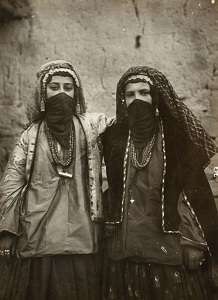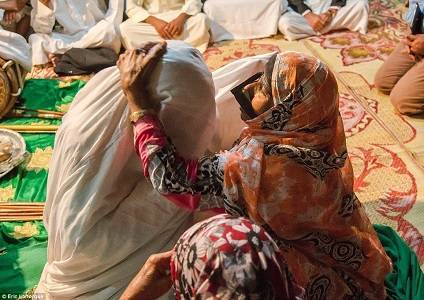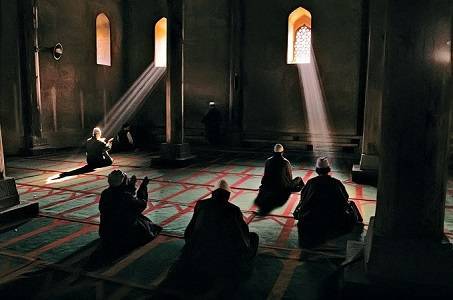«Society and Culture Review» is aspiring to cover subjects of society, everyday life, art and culture in the Middle East and the Islamic world.

The film industry in Iran is politicized and innovative. Τhe events of the Green Movement (2009-2011) deeply affected Iranian society and its film industry. While the Iranian government’s brutality reached the international audience through social media and internet reportage, film directors presented their political change through their films, which were greeted by the international film festivals.
 The international books fairs taking place in almost all Arab countries, due to their scale, historical and geopolitical character, reflect matters of national interest, such as regional power balances. Censorship and state control is one of the biggest problems in those grand events, in which millions are spend yearly, in order for each country to set itself as a cultural power in the region.
The international books fairs taking place in almost all Arab countries, due to their scale, historical and geopolitical character, reflect matters of national interest, such as regional power balances. Censorship and state control is one of the biggest problems in those grand events, in which millions are spend yearly, in order for each country to set itself as a cultural power in the region.
 Music in Tunisia and Egypt flourished during the Arab Spring and became the voice of the uprisings. Often made and performed by protesters on the streets, it kept spirits high. After the elections of 2011, in both Tunisia and Egypt, alternative, rock, rap and electro music kept growing, challenging the system and demanding justice. Today, these genres and their creators continue to talk about themes such as women's rights, failed domestic politics and bleak memories.
Music in Tunisia and Egypt flourished during the Arab Spring and became the voice of the uprisings. Often made and performed by protesters on the streets, it kept spirits high. After the elections of 2011, in both Tunisia and Egypt, alternative, rock, rap and electro music kept growing, challenging the system and demanding justice. Today, these genres and their creators continue to talk about themes such as women's rights, failed domestic politics and bleak memories.
 “Gypsies”, as a distinctive ethnic group present an integral part of the unknown Middle East history. Known as “Dom” in the MENA territory, this societal group embodies the culture of wandering, the oral tradition, as well as commune socio-cultural features, all of which are reflected, incorporated, and transferred through their language and cultural practices. Their history has been inherited from one generation to the other through folks, tales, narratives, and songs. Their communal lifestyle maintains their ancient tradition, while it safeguards the purity of their community. Nevertheless, their isolation from the social structures, the political polarization along with the long-term conflicts of this territory, have complicated their presence in the Middle East.
“Gypsies”, as a distinctive ethnic group present an integral part of the unknown Middle East history. Known as “Dom” in the MENA territory, this societal group embodies the culture of wandering, the oral tradition, as well as commune socio-cultural features, all of which are reflected, incorporated, and transferred through their language and cultural practices. Their history has been inherited from one generation to the other through folks, tales, narratives, and songs. Their communal lifestyle maintains their ancient tradition, while it safeguards the purity of their community. Nevertheless, their isolation from the social structures, the political polarization along with the long-term conflicts of this territory, have complicated their presence in the Middle East.
 Famed for its charitable non-profit work in war-torn and poverty-stricken parts of the world, the Aga Khan Development Network funds, amongst others, a plethora of cultural initiatives coordinated under the umbrella of the Aga Khan Trust for Culture. Albeit guided by Islamic ethics and a focus on redeveloping cultural heritage in areas with Muslim populations, the organization brings together financial and technical resources to revitalize local communities regardless of their faith, and build cultural bridges between the Islamic and non-Islamic world.
Famed for its charitable non-profit work in war-torn and poverty-stricken parts of the world, the Aga Khan Development Network funds, amongst others, a plethora of cultural initiatives coordinated under the umbrella of the Aga Khan Trust for Culture. Albeit guided by Islamic ethics and a focus on redeveloping cultural heritage in areas with Muslim populations, the organization brings together financial and technical resources to revitalize local communities regardless of their faith, and build cultural bridges between the Islamic and non-Islamic world.
 During the historical trajectory of the Middle East, music has been associated with an unexpected spiritual power that can transform the performers and the audience in a numinous way. This power has its locus at the concept of tarab. Tarab underpins the connection that the performer and the audience develop through songs or oriental dance, by sharing the same sentimental conditions. This condition is created through the emotional connection and aesthetic reactions that performance causes. Having this spiritual power, tarab has the ability to break the constructed cultural boundaries among mind and body, cognition and emotion, providing an empirical given reality that mediates in society.
During the historical trajectory of the Middle East, music has been associated with an unexpected spiritual power that can transform the performers and the audience in a numinous way. This power has its locus at the concept of tarab. Tarab underpins the connection that the performer and the audience develop through songs or oriental dance, by sharing the same sentimental conditions. This condition is created through the emotional connection and aesthetic reactions that performance causes. Having this spiritual power, tarab has the ability to break the constructed cultural boundaries among mind and body, cognition and emotion, providing an empirical given reality that mediates in society.
 The most well-known spirit possession in Islam is performed through Ζār. The term denotes a form of spirit possession that causes illness, when the spirits descend into a person, and at the same time a healing ritual that incorporates one of the most therapeutic practices. For Ζār, the human body becomes the locus, the mediator and the carrier that embodies the spirit and its culture in daily life. For that reason, Ζār practices break the boundaries of strict medical and psychological interpretations, making their foundation inextricably linked with the way existence is comprehended. Therefore, Ζār constitutes, first and foremost, a cultural practice determined by philosophical and traditional frameworks.
The most well-known spirit possession in Islam is performed through Ζār. The term denotes a form of spirit possession that causes illness, when the spirits descend into a person, and at the same time a healing ritual that incorporates one of the most therapeutic practices. For Ζār, the human body becomes the locus, the mediator and the carrier that embodies the spirit and its culture in daily life. For that reason, Ζār practices break the boundaries of strict medical and psychological interpretations, making their foundation inextricably linked with the way existence is comprehended. Therefore, Ζār constitutes, first and foremost, a cultural practice determined by philosophical and traditional frameworks.
 One of the most interesting, controversial and challenging religious forms that has shaped and constructed different kinds of beliefs and believers is Sufism. Sufism constitutes a combination of mystical form, spiritual ethics and traditional religion that represents the internalistic and spiritual side of Islamic belief. What Islamic mysticism represents through Sufism is not something separate from the Islamic religion and philosophy, nor a different type of religious ideas coming from Islam. Instead, Sufism portrays another spiritual behavior where bodies, experiences, emotions and embodiment intertwine in an esoteric path.
One of the most interesting, controversial and challenging religious forms that has shaped and constructed different kinds of beliefs and believers is Sufism. Sufism constitutes a combination of mystical form, spiritual ethics and traditional religion that represents the internalistic and spiritual side of Islamic belief. What Islamic mysticism represents through Sufism is not something separate from the Islamic religion and philosophy, nor a different type of religious ideas coming from Islam. Instead, Sufism portrays another spiritual behavior where bodies, experiences, emotions and embodiment intertwine in an esoteric path.
"I know the black ditches
I always carry a rocket launcher on my shoulder;
I know the hot trenches
I always ambush the enemy;
I know war, conflict, and disputes
I will tell the truth even if I am hung on the gallows..."
A new anthology of Taliban poetry aims to bring some cultural understanding of the ‘violent, suppressive and fearsome Taliban’ to English speakers. The book Poetry of the Taliban is now on sale through Amazon and Hurst Publishers in the UK, and coming out in June in the USA. It is a collection of over two hundred contemporary poems, originally combining Urdu, Persian, and Pashtu verse.
The Centre for Mediterranean, Middle East & Islamic Studies posts a multitude of positions in the context of free academic debate. These do not necessarily reflect the positions of the CEMMIS. The use and reproduction of the multimedia material displayed in the CEMMIS website has non-profit character and serves academic and educational purposes, with full respect to copyright and intellectual property laws, and in accordance with the Greek Laws 2121/1993 and 2557/1997.

